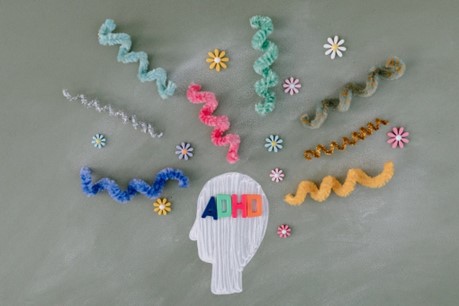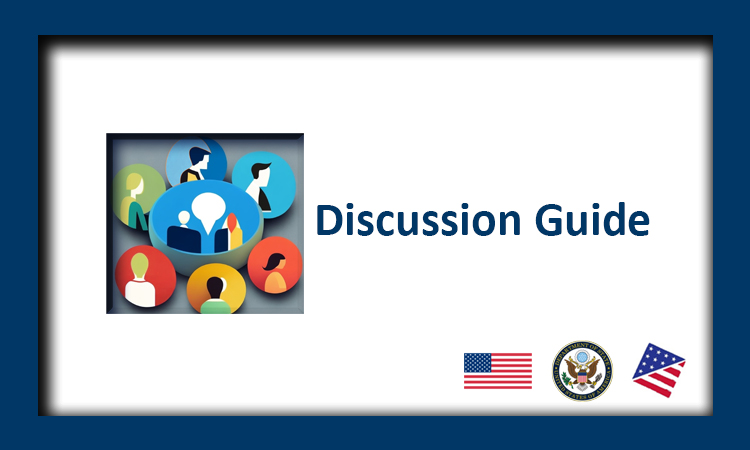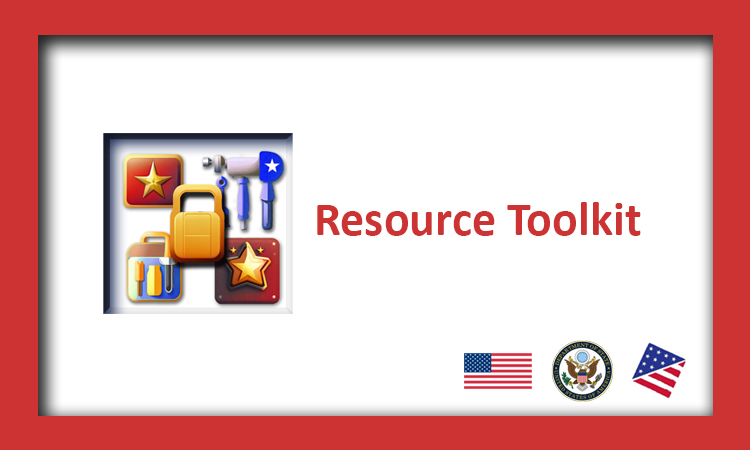TED TALK: THIS IS WHAT IT’S REALLY LIKE TO LIVE WITH ADHD
DISCUSSION GUIDE FOR AMERICAN SPACES
This discussion guide is designed for programming at American Spaces. American Spaces should work with their Public Affairs Section to ensure that this topic and video are appropriate for American Spaces audiences.
ACCESS TO VIDEO
Video Title: This is what it’s really like to live with ADHD
Year Release: 2017
Duration: 17 min
English Level: Advanced
Speaker: Jessica McCabe
Themes: Mental health, education, disabilities, community
VIDEO CONTEXT
Attention-Deficit Hyperactivity Disorder (ADHD) is a mental disorder that has to do with the regulation of a particular set of brain functions and related behavior. ADHD is classified as a disability in the United States, under certain conditions. The three main features of ADHD include inattention, hyperactivity, and impulsivity. People with ADHD have difficulty concentrating and are easily distracted. If undiagnosed, people with ADHD can struggle with difficulties at work and in their relationships
ABOUT THE SPEAKER
Jessica McCabe is the creator of the YouTube channel, How to ADHD. She uses her platform to reach hundreds of thousands of viewers across the globe to help support and educate the ADHD community.
KEY VOCABULARY
ADHD – Attention Deficit Hyperactivity Disorder.
Inattention – Difficulty paying attention to details, easily distracted, organizing and finishing tasks, or forgetfulness.
Hyperactivity – Excessive fidgeting, taps, movements, or restlessness, including in situations in which it is not appropriate.
Impulsivity – The tendency to act without thinking.
Executive Functions – Skills controlled by the frontal lobe of the brain that help you get things done.
TIPS ON VIRTUAL PROGRAMMING
- This video is shareable on social media, and Facebook’s watch party feature can be used to stream this video.
- Consider inviting a local expert or U.S. official to facilitate discussion during and after the webinar.
- Preview the video beforehand to determine which parts you will show. For more tips go here

Discussion Questions
- How are children who exhibit inattention, hyperactivity, and impulsivity treated in the schools in your culture? Do you think it is reasonable to provide children with classroom accommodations?
- Jessica explains that ADHD is not a deficit of attention; it’s a deficit of the regulation of attention. Executive functioning skills help you organize, plan, adapt, and accomplish tasks in daily life. What strategies do you use to accomplish tasks in your life?
- ADHD affects more than one’s ability to focus. Jessica found that a combination of medication, cognitive behavioral therapy, coaching, and physical activity helped her understand her brain better. As someone with ADHD or a neurotypical brain, what do you do to better understand your brain? How does it impact your daily life and relationships?
- The Americans with Disabilities Act of 1990 prohibits discrimination against individuals with disabilities. It requires employers to provide reasonable accommodations to qualified applicants or employees. Individuals with ADHD that substantially limits a major life activity qualify for reasonable accommodations in the workplace. How does your country make accommodations for individuals with disabilities? With ADHD? Do you feel that more or less should be done?
- Most of the literature Jessica found was written for parents or teachers of children with ADHD. What were some beliefs you had about ADHD before watching this video? How have they changed?
Additional Resources
The views expressed in these links and resources do not necessarily reflect those of the U.S. government.
Updated April 2023










